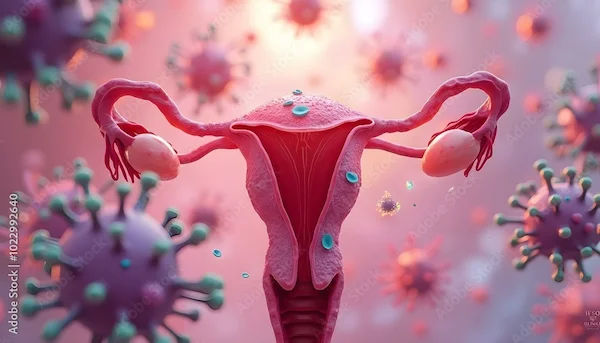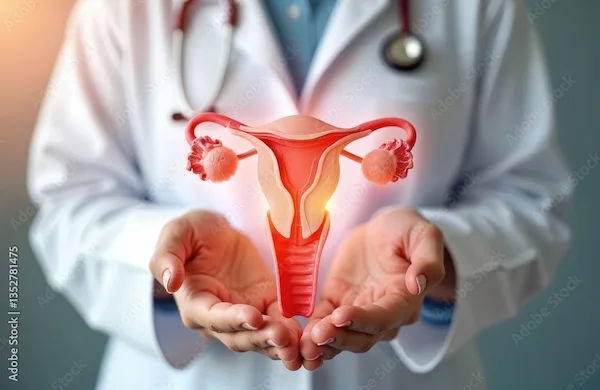Hysterectomy Robotic Surgery Recovery
Discover what to expect during hysterectomy robotic surgery recovery, including healing timelines, post-op care tips, and how this minimally invasive procedure supports faster recovery and improved comfort.

Written by
Last updated on 3rd Jul, 2025
Introduction
Undergoing a hysterectomy, whether for fibroids, endometriosis, cancer, or other health reasons, can feel overwhelming. Fortunately, robotic-assisted hysterectomy offers a minimally invasive option with faster recovery than traditional surgery. If you or a loved one is preparing for or recovering from this procedure, this guide will help you understand what to expect and how to heal smoothly.
What is Robotic Hysterectomy?
A robotic hysterectomy is a type of laparoscopic (keyhole) surgery where a surgeon uses a robotic system to remove the uterus (and sometimes ovaries and fallopian tubes) with precision. The benefits include:
Smaller incisions (less scarring)
Less pain compared to open surgery
Shorter hospital stay (often just 1 day)
Quicker recovery (typically 2-4 weeks vs. 6-8 weeks for open surgery)
What to Expect After Surgery?
Things to expect after the surgery are:
1. Immediate Recovery (First Few Days)
Hospital Stay: Most patients go home the same day or the next morning.
Pain Management: You may have mild discomfort, but pain is usually manageable with prescribed or over-the-counter medications.
Movement: Walking gently soon after surgery helps prevent blood clots and aids recovery.
2. First Two Weeks
Rest is Key: Avoid heavy lifting (nothing over 5-10 lbs), bending, or strenuous activities.
Incision Care: Keep the small incisions clean and dry. They usually heal within 1-2 weeks.
Listen to Your Body: Fatigue is normal—take naps and avoid pushing yourself too hard.
3. Weeks 3-6
Gradual Activity Increase: Light walking is encouraged, but avoid intense workouts or sex until your doctor approves (usually around 6 weeks).
Return to Work: Many women resume desk jobs in 2-3 weeks, but physically demanding jobs may require more time.
Consult Top Specialists for Personalised Tips
Tips for a Smooth Recovery
Some of the tips for a smooth recovery are:
Do’s:
1. Stay Hydrated & Eat Nutritious Foods: Focus on fibre (to prevent constipation) and protein (to aid healing).
2. Walk Daily: Gentle movement improves circulation and speeds up recovery.
3. Follow Doctor’s Instructions: Attend follow-ups and take medications as prescribed.
4. Use a Pillow for Support: Holding a pillow against your abdomen can ease coughing or laughing discomfort.
Don’ts:
1. Avoid Heavy Lifting & Strenuous Activities: This can strain healing tissues.
2. Skip Swimming & Baths: Stick to showers until incisions fully heal.
3. Ignore Warning Signs: Call your doctor if you have:
Fever (over 101°F)
Heavy bleeding
Severe pain or swelling
Signs of infection (redness, pus at incision sites)
Emotional & Mental Well-being
A hysterectomy can bring mixed emotions, relief from symptoms but also hormonal changes (if ovaries are removed). It’s normal to feel tired or emotional. Consider:
Talking to a counselor or support group
Practicing relaxation techniques (meditation, deep breathing)
Communicating with loved ones about how you feel
When to Seek Help?
While robotic hysterectomy has fewer complications, contact your doctor if you experience:
Persistent nausea/vomiting
Difficulty urinating
Unusual vaginal discharge or odour
Severe mood swings (if ovaries were removed)
Conclusion
In conclusion, recovering from hysterectomy robotic surgery is generally quicker and less painful than traditional methods, thanks to its minimally invasive approach. With proper post-operative care, regular follow-ups, and a gradual return to normal activities, most patients can expect a smooth and successful recovery. Always consult your healthcare provider for personalised advice to ensure the best outcome for your individual health needs.
Consult Top Obstetrics and Gynaecology Surgeon
Consult Top Specialists for Personalised Tips

Dr Swatika Kumari
Obstetrician and Gynaecologist
19 Years • MBBS, DGO, DNB Obstetrics & Gynaecology
Nashik
Apollo 24|7 Clinic - Maharashtra, Nashik

Dr. Veena H
Obstetrician and Gynaecologist
16 Years • MBBS DGO
Bangalore
Apollo 24|7 Clinic - Karnataka, Bangalore

Dr. Priyanka Surisetty
Obstetrician and Gynaecologist
8 Years • MBBS, DGO
Visakhapatnam
Apollo 24|7 Clinic - Andhra Pradesh, Visakhapatnam

Dr. Mona Yadav
Obstetrician and Gynaecologist
19 Years • MBBS, MD (Obstetrics & Gynaecology)
Dombivli
Nulife multispeciality, Dombivli

Dr. Asha Rani Singh
Obstetrician and Gynaecologist
24 Years • MBBS DGO
Delhi
Dr Asha Rani Singh Clinic, Delhi
Consult Top Obstetrics and Gynaecology Surgeon

Dr Swatika Kumari
Obstetrician and Gynaecologist
19 Years • MBBS, DGO, DNB Obstetrics & Gynaecology
Nashik
Apollo 24|7 Clinic - Maharashtra, Nashik

Dr. Veena H
Obstetrician and Gynaecologist
16 Years • MBBS DGO
Bangalore
Apollo 24|7 Clinic - Karnataka, Bangalore

Dr. Priyanka Surisetty
Obstetrician and Gynaecologist
8 Years • MBBS, DGO
Visakhapatnam
Apollo 24|7 Clinic - Andhra Pradesh, Visakhapatnam

Dr. Mona Yadav
Obstetrician and Gynaecologist
19 Years • MBBS, MD (Obstetrics & Gynaecology)
Dombivli
Nulife multispeciality, Dombivli

Dr. Asha Rani Singh
Obstetrician and Gynaecologist
24 Years • MBBS DGO
Delhi
Dr Asha Rani Singh Clinic, Delhi

.webp)


